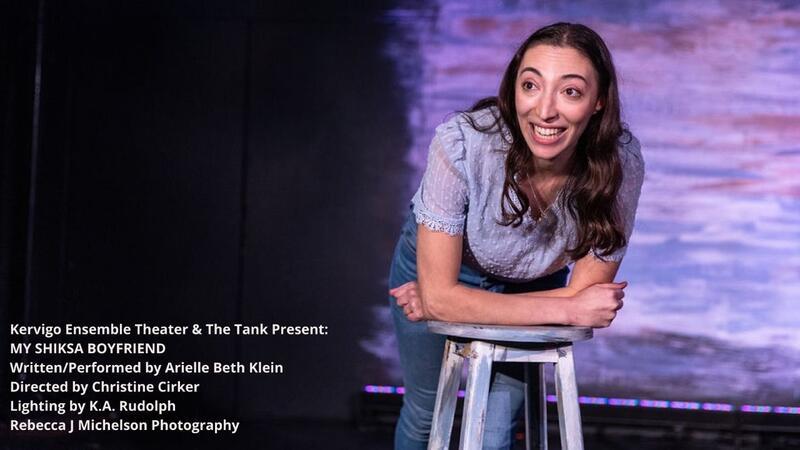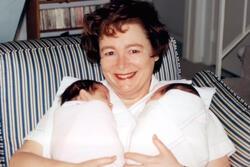Writing a One-Woman Show Re-Connected Me with My Jewish Heritage
You know how when you’re forced to do something, you start resenting it? That happened to me with Judaism. I grew up in a Conservative Jewish day school bubble, forced to pray every day in school from second grade to twelfth grade. By the time I got to college, I couldn’t understand why some of my classmates were going to Hillel for services by choice.
I eventually found my way back to Judaism—in a theater class, of all places. My senior year of college, I took a stage movement class. We were working with Commedia dell’Arte masks, these beautiful, wooden masks that go with a specific stock character-type based on appearance. When it was my turn, I randomly chose the Pantalone mask, the eldery archetype.
I was a little bit daunted by the exercise, but when I picked up the mask, my immediate reaction was one of comfort and familiarity. The Pantalone mask has sunken eyes with bags underneath, some wrinkles on the cheeks, and a nose that looks like a more drastic version of, well, my nose. My first thought was, “This mask is Jewish!” (I love my big nose, and as a Jew, I think I get a pass to embrace the “Jewish nose” stereotype).
I put on the mask, and, as part of the exercise, my teacher started asking me questions, for which I was supposed to improvise answers. Without even thinking, I started devising a Holocaust survivor.
I knew my bubbe had survived the Holocaust, but I didn’t really know her story. So I called my mom and started asking her questions. She told me how my bubbe was captured by Nazis, how she was forced to work on a slave labor farm, and how she changed her name and pretended to be Catholic to stay alive.
Not coincidentally, it was around this time that I started writing my one-woman show, My Shiksa Boyfriend, about growing up as a third-generation Holocaust survivor and then falling in love with a non-Jew. The show asks how we can honor both our past and our future. When I started writing it, I was a Jew who had strayed from her community. Now, in the middle of the fully staged NYC premiere of the show, I have never felt so connected to my heritage.
This evolution happened as I learned the stories of what happened to my grandmother in the Holocaust, and how our family immigrated to America—a story I only knew vaguely before. I am so proud of my bubbe for her resilience and feel grateful to be able to be publicly, proudly Jewish, something she wasn’t always able to do.
After learning my family history, I also started to confront the intergenerational trauma that I didn’t even realize I was dealing with. After reading some books and going to therapy, I learned that I experience generational trauma as guilt for not doing Judaism “perfectly”—whatever that even means. I learned that the guilt I am experiencing is actually something that ties me to my heritage, but that it is not mine to carry. I now feel less bogged down by trauma, free to celebrate being Jewish in a new way.
In sharing my play with the world, I feel like I’m sharing Jewish traditions and practices with people who might not have otherwise known about them. In this way, I’m contributing to l'dor vador, which means “from generation to generation” and refers to the idea that Jews should pass on their traditions to future generations. This is something I didn’t think I would be able to do, as someone who’s known for a long time she didn’t want to have kids.
Although this show is my personal narrative of grappling with falling in love with a non-Jew, I hope this story about love, healing, and honoring your heritage is universal. And I’m grateful that, through my work, I get to share my newly strengthened Jewish identity with audiences.






